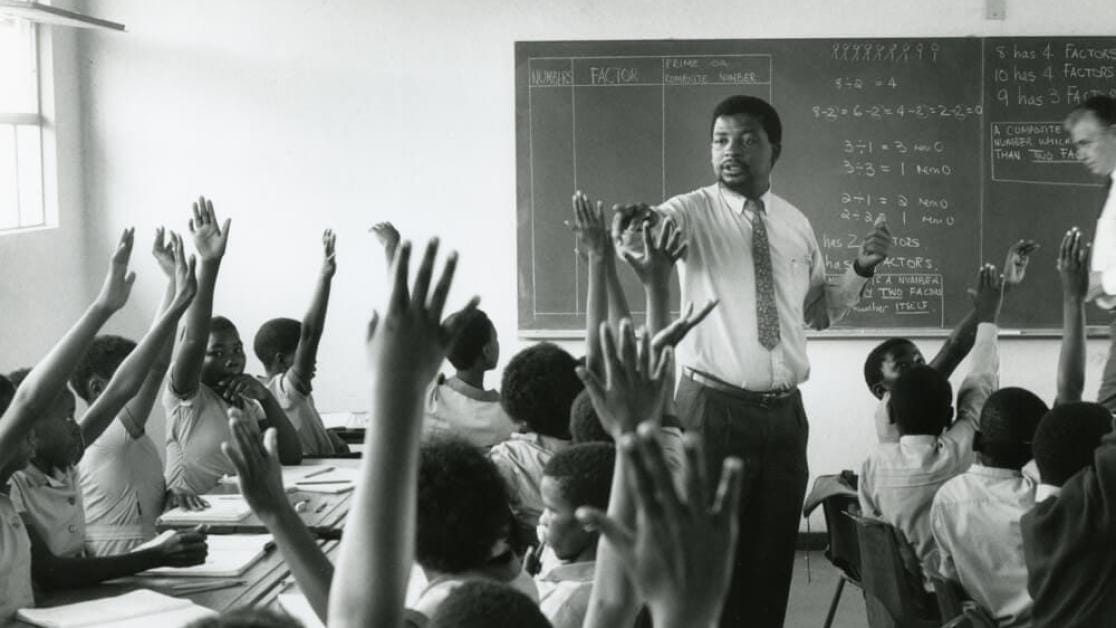The new Bantu Education?
When Hermann Giliomee made the claim at the recent South African Historical Society conference that it is time to review the Bantu Education Act of 1953, the audience cried out in disgust. How could anyone have anything but contempt for an Act that have arguably had the most profound negative effect on South Africa's economic fortunes, and still does? The Bantu Education Act of 1953 nationalised education for black South Africans (away from missionary education) and delineated spending on education according to race, with budgets heavily biased towards white education; in the 1970s, the per capita spending on black education was one-tenth of the spending on whites, for example. But the Act is probably most remembered for the following quote by Hendrik Verwoerd:
There is no place for [the Bantu] in the European community above the level of certain forms of labour ... What is the use of teaching the Bantu child mathematics when it cannot use it in practice?
I was reminded of this quote when Basic Education Minister Angie Motshekga said in parliament last week that one in four schools do not offer mathematics in grades 10, 11 and 12 because of teacher shortages and a low pupil enrollment. Let's consider that again: 25% of the poorest schools cannot equip even their brightest kids with mathematics, a subject that is required to enter almost all technical fields, i.e. science, commerce, medicine, and engineering. Each of these schools might as well put a sign outside their classroom saying:
THERE IS NO PLACE FOR YOU IN THE SOUTH AFRICAN ECONOMY ABOVE THE LEVEL OF CERTAIN FORMS OF LABOUR!
The reasons for these schools not teaching maths are multifaceted. A culture of 'liberation before education', poor teacher quality and poor school management persists in many of these schools, a legacy of the Bantu Education Act and other apartheid policies. But there are other reasons too. Equal Education treasurer Doran Isaacs blames a too dogmatic focus on the matric pass rate:
It is a direct result of a narrow and single-minded pressure for schools to increase the matric pass rate at all costs. It is compulsory to either do maths or maths literacy. So these learners are doing maths literacy, which is basic arithmetic. The two are not comparable. Schools either push kids out or they stop offering maths altogether as a way of increasing the matric rate. This results in a new form of Bantu education where the richer kids do maths and the poorer kids do maths literacy.
Sadly, it is getting worse:
The basic education department's reports indicate a 17% decline in the number of candidates who wrote mathematics between 2009 and 2013 (from about 290 400 to 241 400). At the same time, the number of candidates writing mathematics literacy rose sharply to 58% of the 2013 cohort.
And it is unlikely to improve fast, given the poor performance of kids at a younger age:
...less than half the learners in each cohort show foundational competence in mathematics, as indicated by the 61% of grade six learners who failed to score 50%.
It remains an awkward fact that South Africa's highest matric pass rate for black students (writing the same exam as whites) was in 1976, the year famous for the Soweto uprising. Granted, many black kids did not reach matric and in many schools not the full curriculum was covered. But compared to the situation today, were the outcomes any worse?
This is not to say that the Bantu Education Act should be labeled anything other than unjust. It not only had massive psychological effects on black South Africans, but real consequences for the economy and society too; as Miriam Mathabane asks, if Verwoerd had not taken over black education as he did, “if black children had had the same educational opportunities as white children, would there be less crime, fewer murderers, carjackers and rapists in the New South Africa, and more teachers, lawyers, writers and nurses?” Even with the budgetary constraints and political climate of the 1950s and 1960s, a different policy was possible.
But perhaps Giliomee has a point too: we should weight the impact of Bantu Education not against the single quote of a deluded man, but against the statistical evidence of its outcomes, and, in particular, the outcomes that were to follow. When historians meet in 2051 at the South African Historical Society conference, how will they compare the South African education systems of the two decades before and the decades after democracy? Which system will be considered more unjust?
*Image source: University of Cape Town Primary Math Education Project, 1995.


